Diplomat: His Excellency Mr Andrii Beshta
Words MAXMILIAN WECHSLER
Words MAXMILIAN WECHSLER
| HIS Excellency Mr Andrii Beshta began his second assignment in Thailand on February 4, this time as Ambassador of Ukraine. He served here previously as Counsellor during 2007-2011 and is therefore already very familiar with the country and the region. He has high expectations of bolstering bilateral relations between Ukraine and the Kingdom during his four-year term. His return was welcomed by many Thais and foreigners who got to know him the last time around. “I was born in Volyn region in the western part of Ukraine in December 1976, when we were still a part of the Soviet Union,” said Ambassador Beshta. “In my school years I witnessed the collapse of the old regime and the first steps of an independent Ukraine. I believed that diplomacy would be an extremely interesting profession and hoped to make a humble contribution towards developing Ukraine into a democratic and prosperous nation. “I graduated from Lviv State University's Faculty of International Relations in 1998 and the same year I started my diplomatic career in the Ministry of Foreign Affairs (MFA) of Ukraine. “My first visit to Thailand – in fact to Southeast Asia – was in 2007 when I was posted here as the Counselor. That was the second posting abroad in my career. Frankly speaking, at that time I was slightly confused with the new destination as I had never dealt directly with this region and my knowledge of Thailand was limited to a few well-known items, like it was one of the ‘Asian Tigers’ and a beautiful tourist destination. |
“After spending a very short time here back in 2007 my family and I literally fell in love with this country, its kind and friendly people, rich historical and cultural heritage and traditions as well as natural beauty, not to mention the tasty and diverse Thai cuisine. Thus we used every opportunity to explore the country. We travelled east and west, north and south, combining trips to islands and beaches to relax with adventures in natural parks and historical and cultural sightseeing.
“For the first time in my life I experienced how much people could love their monarch, having witnessed thousands of Thais enjoying and crying with love at the same time in the presence of His Majesty the King Bhumibol Adulyadej. I am happy that I can experience life in a society predominantly guided by Buddhism. From my perspective this definitely reflects on the way of life and behaviour of most Thais.
“Therefore when I had the chance to express my preferences about the country of my posting as ambassador, I had only one place in mind – Thailand. I believed that my previous experience here will be helpful in discharging my responsibilities, and I am glad that this was supported by the Minister and the President of Ukraine. The President made my appointment official on November 24, 2015 and it took me about two months to wrap things up in Kiev and prepare for my new job. I arrived in Thailand in late January 2016.
“This is my first posting as ambassador and I am very happy that it is in the Kingdom of Thailand. Within our family we say that we are back to our second home – as we’ve spent more time here than in any other country outside of Ukraine. Usually postings abroad are for four years. I will devote all my skills and energy to achieving progress and results in furthering relations between Ukraine and Thailand.”
Seasoned diplomat
“I feel lucky that throughout my almost 18-year diplomatic career I had the opportunity to work both in areas of multilateral and bilateral diplomacy. That is a great asset to any diplomat. My first posting abroad was in the Permanent Mission of Ukraine to the United Nations, and all of my time in the MFA I have been involved with the UN and other international organizations.
“Before coming to Thailand for almost two years I was in charge of our Directorate General for International Organizations. These include the UN system, Organization for Security and Co-operation in Europe (OSCE) and the Council of Europe (CoE). This period coincided with one of the most dramatic times in the history of Ukraine – when in early 2014 the Russian Federation first occupied the Autonomous Republic of Crimea and the City of Sevastopol and then continued with the armed aggression in the southeast Ukrainian region of Donbas.
“While our soldiers have bravely defended Ukraine against the aggressor on the military front, we diplomats fought on the diplomatic front to consolidate international support and solidarity with our country. And activities within the international organizations were an important element of our diplomatic efforts to resist Russian aggression. I am proud that I had the chance to work during this challenging period as part of a team of professional and dedicated diplomats, both in the MFA in Kiev and in our permanent missions in UN, OSCE and the CoE. These organizations have adopted numerous resolutions in response to Russia’s blatant violation of norms and principles of international law and its commitments and responsibilities according to the UN Charter, the Helsinki Final Act and the Charter of the Council of Europe.”
“Let me just mention the historic UN General Assembly resolution ‘Territorial integrity of Ukraine,’ adopted on March 27, 2014, by 100 UN member states. Only ten countries supported the Russian Federation, among those North Korea, Syria, Venezuela and Zimbabwe. And we do highly appreciate that the Kingdom of Thailand was among those 100 states that stood on the right side of the history, defending the fundamental norms and principles of international law.”
“Unfortunately, the Russian Federation has shown a total disregard for all those resolutions, and the international organizations lack mechanisms to enforce them, especially when the aggressor is a permanent member of the UN Security Council (UNSC). The Russian Federation has already used its right of veto twice to block the UNSC resolutions related to its aggression against Ukraine.”
“At the end of my assignment in Kiev – namely in October 2015 – Ukraine was elected as a non-permanent member of the UNSC for the period of 2016-2017. This was a clear sign of international support and solidarity with Ukraine in the given circumstances.”
Relations with Thailand
“I am leading a rather small team of four diplomats including myself and one administrative staff from Ukraine. We are supported by one Thai secretary who has been working with us for many years. Our responsibilities are to maintain diplomatic relations and official channels of communication with Thailand; develop cooperation in political, trade, security, cultural and other areas; and provide support and protection to Ukrainian citizens and companies in Thailand. Our embassy is also covering Laos and Myanmar.”
In its work the embassy for many years has been supported and assisted by Mr Preecha Tirakijpong, the Honorary Consul-General of Ukraine since 2002. Last year Ms Bang-on Jansanthia was appointed as Honorary Consul in Chonburi Province.
“Diplomatic relations between Ukraine and Thailand were established on May 6, 1992. However, I cannot but proudly mention one page in the history of our relations that was written more than 100 years ago. In 1906, a Ukrainian lady, Kateryna Desnytska – in fact born in the same Volyn region of Ukraine as myself – married Prince Chakrabongse Bhuvanath of Thailand. In 1910 Kateryna officially became Princess of Siam under the name Na Phitsanulok. In 1911 the couple visited Kiev.
“Their son Chula graduated from Cambridge University and became a historian. Prince Chula’s daughter, Narisa, lives in Europe. In 1994, Narisa published a book about her grandparents ‘Katya & the Prince of Siam’ – the true love story of a beautiful Ukrainian girl and a Thai prince.
“Next year we will mark the 25th anniversary of the establishment of bilateral relations. Our relationship is still ‘young’ when compared with Thailand’s 500-year relationship with Portugal or more than the 180-year diplomatic relationship with the U.S. However, there have been a number of important developments in this rather short time.
“We opened our embassy in Bangkok in 2002 and two years later the official visit of the President of Ukraine to Thailand and his meeting with His Majesty the King Bhumibol Adulyadej opened an important new chapter in the history of our relations. Since then dozens of high-level visits have taken place. Nearly 20 bilateral agreements and memorandums in different spheres have been signed.”
“I can say that my predecessors built a sound foundation for further development of bilateral cooperation. Our relations are friendly, based on mutual trust and understanding and not complicated by any problem issues. We recognize that Thailand plays one of the leading roles in the region of Southeast Asia and serves as the bridge between Europe and ASEAN countries.
“With its considerable industrial and scientific potential, human and agricultural resources, Ukraine can become an important partner for Thailand, especially at a time when the Kingdom is taking steps to diversify its relations with global and regional powers.
“Therefore, I am looking optimistically to further successful development of Ukrainian-Thai relations in the years to come in many areas for the benefit of both countries and peoples – it’s a ‘win-win’ situation. As ambassador I will spare no efforts to achieve notable progress and results, especially since there is a huge potential in many areas.
“In the political area we continue to maintain contacts at different levels. The latest and very important meeting between ministers of foreign affairs of Ukraine and the Kingdom of Thailand was on the margins of the Conference on Interaction and Confidence-Building Measures in Asia in Beijing in April. This meeting gave impetus to cooperation in different areas. We have agreed to hold the second round of political consultations between the MFA of Ukraine and Thailand this year.
“The next step will be the first meeting of the Joint Commission on Bilateral Cooperation, where we can discuss issues in more detail with the participation of experts from different ministries and agencies on a broad agenda of practical cooperative projects in many areas. There are indeed a lot of them.
“Trade and economic cooperation have been developing dynamically. In 2010, the trade turnover reached more than US$600 million. After a few years of decline in 2015 trade started to show growth again, reaching almost US$500 million. This positive trend continues this year.
“Statistics for the first quarter of 2016 show that Thailand has become the second fastest growing market for Ukrainian products, after the EU as a block. In previous years Ukraine exports were predominantly steel and metal products; currently it is agricultural and food products.
“Ukraine is the breadbasket of Europe, with the world’s largest areas of fertile black soil. Last year Ukraine exported to Thailand about 1.5 million tons of wheat, far more than any other country. Ukraine also imports from the kingdom various agricultural products and foodstuff. Thai seafood, fresh and canned fruits, and, of course, the world-famous Thai ‘jasmine’ rice, are all very popular in Ukraine.
“However, given Ukraine’s significant industrial, scientific potential as well as educated and skilled human resources, I see one of my tasks as ambassador to explore the Thai market for our high-tech and high-added value products.
“Ukraine has around 1,500 scientific institutions and organizations, of which about 450 are in the academic sector while the rest are industrial. About 126,000 Ukrainians are directly engaged in research and engineering activities. This great scientific potential allows us to develop advanced technologies for different sectors, including aircraft and aerospace, automotive, shipbuilding, transportation, biotech and IT.
“There have already been a number of positive examples of such cooperation. In 2012 our governments signed the Agreement on cooperation in the area of defense, and since 2008 Ukraine has been supplying BTR-3E1 armoured personnel carriers and main battle tanks OPLOT to the Royal Thai Army. The Minister of Defense of Ukraine visited Bangkok in November 2015 and extended an invitation to the Deputy Prime Minister and Minister of Defense Prawit Wongsuwan to visit Ukraine.
“Ukraine is also interested in expanding cooperation in the peaceful exploration of outer space. In 2008 the first Thai satellite, ‘THEOS,’ was launched by Ukraine’s space launch vehicle ‘Dnipro.’ Another promising field of cooperation is the aircraft industry. Ukrainian State Corporation Antonov with nearly 70 years of experience has full-cycle aircrafts’ production, including pre-project scientific researches, tests, certification, serial production and after-sale maintenance.
“Throughout these decades it has built more than 22 thousand units of passenger, transport, military and special-purpose aircraft of more than one hundred types and modifications.
The cargo giants called AN-124 ‘Ruslan’ and AN-225 ‘Mriya’ are the special pride of our aviation designers. The AN-225 ‘Mriya’ is the biggest airplane in the world and can be used for the delivery of very large cargo including turbines, railcars and locomotives for infrastructure projects in Thailand. Moreover, we can discuss the joint manufacturing of AN aircraft in Thailand under the framework of the Cluster-based Special Economic Development Zones Policy (this is the policy of Thai Government: bit.ly/24VvndC).
“Thailand is aiming to build a rapid and efficient railway network to better connect ASEAN, and transform the kingdom into the regional transportation hub. Ukraine can supply everything from materials for building the railway network to rolling-stock and locomotives.
“Just last May I attended the opening ceremony of the Digital Thailand 2016 Conference and listened to a speech by Prime Minister Prayut Chan-ocha. He placed a high importance on developing the digital technologies to drive the development of Thailand in different sectors. And I can mention in this regard that Ukraine has the largest software development industry in Europe and fourth largest in the world. There are 100,000 certified software professionals in the country and ambitious plans to double this number by 2020.
“Ukraine invites Thai investors to allocate their assets into the most profitable and reliable sectors of Ukraine’s national economy, which include not only IT but also the industrial, construction, agricultural and service sectors. Apart from establishing new businesses, Thai investors are also welcome to participate in the upcoming privatization of a large number of state-owned enterprises in Ukraine.”
Promoting personal exchanges
“I see establishing closer people-to-people contacts as one of the important aspects of my job here. I want to help Thai people to discover Ukraine and in turn to promote new opportunities for Ukrainians in Thailand.
“Thailand is already very popular among Ukrainian tourists. In recent years the numbers have been steadily growing. In 2013 about 24,000 Ukrainians visited Thailand; in 2014 there were about 36,000; and in 2015 nearly 45,000 visitors came here. The number of Ukrainian tourists could rise even faster if the Thai side liberalized the visa regime. Now Ukrainian tourists only receive a 15-day visa on arrival.
“I also would like to encourage Thais to discover Ukraine – the Carpathian Mountains and many historical and cultural sites, particularly medieval castles and churches.
“In 2015 more than 1,500 Ukrainian nationals were in residence in Thailand. They are mostly involved in business projects in the areas of tourism, entertainment and restaurants. Having spent some time here, I can’t say that I feel the Ukrainian community here is truly united. With this interview I want to send the message that I am ready to support efforts to bring Ukrainians in Thailand closer together in any way I can.”
“I am leading a rather small team of four diplomats including myself and one administrative staff from Ukraine. We are supported by one Thai secretary who has been working with us for many years. Our responsibilities are to maintain diplomatic relations and official channels of communication with Thailand; develop cooperation in political, trade, security, cultural and other areas; and provide support and protection to Ukrainian citizens and companies in Thailand. Our embassy is also covering Laos and Myanmar.”
In its work the embassy for many years has been supported and assisted by Mr Preecha Tirakijpong, the Honorary Consul-General of Ukraine since 2002. Last year Ms Bang-on Jansanthia was appointed as Honorary Consul in Chonburi Province.
“Diplomatic relations between Ukraine and Thailand were established on May 6, 1992. However, I cannot but proudly mention one page in the history of our relations that was written more than 100 years ago. In 1906, a Ukrainian lady, Kateryna Desnytska – in fact born in the same Volyn region of Ukraine as myself – married Prince Chakrabongse Bhuvanath of Thailand. In 1910 Kateryna officially became Princess of Siam under the name Na Phitsanulok. In 1911 the couple visited Kiev.
“Their son Chula graduated from Cambridge University and became a historian. Prince Chula’s daughter, Narisa, lives in Europe. In 1994, Narisa published a book about her grandparents ‘Katya & the Prince of Siam’ – the true love story of a beautiful Ukrainian girl and a Thai prince.
“Next year we will mark the 25th anniversary of the establishment of bilateral relations. Our relationship is still ‘young’ when compared with Thailand’s 500-year relationship with Portugal or more than the 180-year diplomatic relationship with the U.S. However, there have been a number of important developments in this rather short time.
“We opened our embassy in Bangkok in 2002 and two years later the official visit of the President of Ukraine to Thailand and his meeting with His Majesty the King Bhumibol Adulyadej opened an important new chapter in the history of our relations. Since then dozens of high-level visits have taken place. Nearly 20 bilateral agreements and memorandums in different spheres have been signed.”
“I can say that my predecessors built a sound foundation for further development of bilateral cooperation. Our relations are friendly, based on mutual trust and understanding and not complicated by any problem issues. We recognize that Thailand plays one of the leading roles in the region of Southeast Asia and serves as the bridge between Europe and ASEAN countries.
“With its considerable industrial and scientific potential, human and agricultural resources, Ukraine can become an important partner for Thailand, especially at a time when the Kingdom is taking steps to diversify its relations with global and regional powers.
“Therefore, I am looking optimistically to further successful development of Ukrainian-Thai relations in the years to come in many areas for the benefit of both countries and peoples – it’s a ‘win-win’ situation. As ambassador I will spare no efforts to achieve notable progress and results, especially since there is a huge potential in many areas.
“In the political area we continue to maintain contacts at different levels. The latest and very important meeting between ministers of foreign affairs of Ukraine and the Kingdom of Thailand was on the margins of the Conference on Interaction and Confidence-Building Measures in Asia in Beijing in April. This meeting gave impetus to cooperation in different areas. We have agreed to hold the second round of political consultations between the MFA of Ukraine and Thailand this year.
“The next step will be the first meeting of the Joint Commission on Bilateral Cooperation, where we can discuss issues in more detail with the participation of experts from different ministries and agencies on a broad agenda of practical cooperative projects in many areas. There are indeed a lot of them.
“Trade and economic cooperation have been developing dynamically. In 2010, the trade turnover reached more than US$600 million. After a few years of decline in 2015 trade started to show growth again, reaching almost US$500 million. This positive trend continues this year.
“Statistics for the first quarter of 2016 show that Thailand has become the second fastest growing market for Ukrainian products, after the EU as a block. In previous years Ukraine exports were predominantly steel and metal products; currently it is agricultural and food products.
“Ukraine is the breadbasket of Europe, with the world’s largest areas of fertile black soil. Last year Ukraine exported to Thailand about 1.5 million tons of wheat, far more than any other country. Ukraine also imports from the kingdom various agricultural products and foodstuff. Thai seafood, fresh and canned fruits, and, of course, the world-famous Thai ‘jasmine’ rice, are all very popular in Ukraine.
“However, given Ukraine’s significant industrial, scientific potential as well as educated and skilled human resources, I see one of my tasks as ambassador to explore the Thai market for our high-tech and high-added value products.
“Ukraine has around 1,500 scientific institutions and organizations, of which about 450 are in the academic sector while the rest are industrial. About 126,000 Ukrainians are directly engaged in research and engineering activities. This great scientific potential allows us to develop advanced technologies for different sectors, including aircraft and aerospace, automotive, shipbuilding, transportation, biotech and IT.
“There have already been a number of positive examples of such cooperation. In 2012 our governments signed the Agreement on cooperation in the area of defense, and since 2008 Ukraine has been supplying BTR-3E1 armoured personnel carriers and main battle tanks OPLOT to the Royal Thai Army. The Minister of Defense of Ukraine visited Bangkok in November 2015 and extended an invitation to the Deputy Prime Minister and Minister of Defense Prawit Wongsuwan to visit Ukraine.
“Ukraine is also interested in expanding cooperation in the peaceful exploration of outer space. In 2008 the first Thai satellite, ‘THEOS,’ was launched by Ukraine’s space launch vehicle ‘Dnipro.’ Another promising field of cooperation is the aircraft industry. Ukrainian State Corporation Antonov with nearly 70 years of experience has full-cycle aircrafts’ production, including pre-project scientific researches, tests, certification, serial production and after-sale maintenance.
“Throughout these decades it has built more than 22 thousand units of passenger, transport, military and special-purpose aircraft of more than one hundred types and modifications.
The cargo giants called AN-124 ‘Ruslan’ and AN-225 ‘Mriya’ are the special pride of our aviation designers. The AN-225 ‘Mriya’ is the biggest airplane in the world and can be used for the delivery of very large cargo including turbines, railcars and locomotives for infrastructure projects in Thailand. Moreover, we can discuss the joint manufacturing of AN aircraft in Thailand under the framework of the Cluster-based Special Economic Development Zones Policy (this is the policy of Thai Government: bit.ly/24VvndC).
“Thailand is aiming to build a rapid and efficient railway network to better connect ASEAN, and transform the kingdom into the regional transportation hub. Ukraine can supply everything from materials for building the railway network to rolling-stock and locomotives.
“Just last May I attended the opening ceremony of the Digital Thailand 2016 Conference and listened to a speech by Prime Minister Prayut Chan-ocha. He placed a high importance on developing the digital technologies to drive the development of Thailand in different sectors. And I can mention in this regard that Ukraine has the largest software development industry in Europe and fourth largest in the world. There are 100,000 certified software professionals in the country and ambitious plans to double this number by 2020.
“Ukraine invites Thai investors to allocate their assets into the most profitable and reliable sectors of Ukraine’s national economy, which include not only IT but also the industrial, construction, agricultural and service sectors. Apart from establishing new businesses, Thai investors are also welcome to participate in the upcoming privatization of a large number of state-owned enterprises in Ukraine.”
Promoting personal exchanges
“I see establishing closer people-to-people contacts as one of the important aspects of my job here. I want to help Thai people to discover Ukraine and in turn to promote new opportunities for Ukrainians in Thailand.
“Thailand is already very popular among Ukrainian tourists. In recent years the numbers have been steadily growing. In 2013 about 24,000 Ukrainians visited Thailand; in 2014 there were about 36,000; and in 2015 nearly 45,000 visitors came here. The number of Ukrainian tourists could rise even faster if the Thai side liberalized the visa regime. Now Ukrainian tourists only receive a 15-day visa on arrival.
“I also would like to encourage Thais to discover Ukraine – the Carpathian Mountains and many historical and cultural sites, particularly medieval castles and churches.
“In 2015 more than 1,500 Ukrainian nationals were in residence in Thailand. They are mostly involved in business projects in the areas of tourism, entertainment and restaurants. Having spent some time here, I can’t say that I feel the Ukrainian community here is truly united. With this interview I want to send the message that I am ready to support efforts to bring Ukrainians in Thailand closer together in any way I can.”
Occupation of Crimea
The ambassador then turned to a subject that is never far from his thoughts. “On February 20, 2014 Russia launched an armed aggression against Ukraine by occupying the Autonomous Republic of Crimea and the city of Sevastopol. Reports of international organizations and human rights institutions register massive intimidation and persecutions by the Russian occupying authorities of ethnic Ukrainians and indigenous Crimean Tatars – those who opposed the occupation – as well as gross and systematic human rights violations in Crimea, including restrictions of freedom of thought, conscience and religion, freedom of assembly and association.
“Such behaviour is not acceptable in the 21st century and the international community has strongly reacted to Russian aggressive actions. The US, EU and other nations have imposed a number of sanctions against Russia.”
MH-17
The Ambassador also spoke about the downing of Malaysian MH-17 flight, which led to the tragic loss of 298 innocent lives. “The international community bears responsibility before the victims and their families to bring the perpetrators of this heinous crime to justice.
“There is dual track to the investigation. In October 2015, the Dutch Safety Board, to whom Ukraine delegated the authority to conduct a technical investigation, concluded that Malaysia Airlines flight MH-17 was brought down by a warhead installed on a Russian-made Buk surface-to-air missile system.
“Another track is the criminal investigation being conducted by the Joint Investigation Team (JIT) headed by the Netherlands and which includes also Ukraine, Australia, Belgium and Malaysia. It is expected that the investigation will be concluded in the fall of this year and it will help to assemble the full puzzle.”
Personal
“My wife Natalia and I met at university. We are proud parents of three wonderful children of 11, 12 and 16 years of age. As for my hobbies, number one is music. For me personally no other kind of art can reach and resonate with the deepest part of our soul. Another hobby is discovering nature and the world around us.
“When I was a student, every summer with my friends we went on week-long hiking trips around beautiful Carpathian Mountains. Not only enjoying being close to nature and understanding the culture and traditions of people living in the mountains, but also obtaining necessary survival skills. I have very bright memories from that period of my life and want to transfer my experiences to my children.
“While in Ukraine every summer our family used to make a two or three week car trip around the Carpathian Mountains, including spending time in the wild in tents. With its rich nature and wildlife and abundant natural parks, Thailand provides endless opportunities for adventure.”
The ambassador then turned to a subject that is never far from his thoughts. “On February 20, 2014 Russia launched an armed aggression against Ukraine by occupying the Autonomous Republic of Crimea and the city of Sevastopol. Reports of international organizations and human rights institutions register massive intimidation and persecutions by the Russian occupying authorities of ethnic Ukrainians and indigenous Crimean Tatars – those who opposed the occupation – as well as gross and systematic human rights violations in Crimea, including restrictions of freedom of thought, conscience and religion, freedom of assembly and association.
“Such behaviour is not acceptable in the 21st century and the international community has strongly reacted to Russian aggressive actions. The US, EU and other nations have imposed a number of sanctions against Russia.”
MH-17
The Ambassador also spoke about the downing of Malaysian MH-17 flight, which led to the tragic loss of 298 innocent lives. “The international community bears responsibility before the victims and their families to bring the perpetrators of this heinous crime to justice.
“There is dual track to the investigation. In October 2015, the Dutch Safety Board, to whom Ukraine delegated the authority to conduct a technical investigation, concluded that Malaysia Airlines flight MH-17 was brought down by a warhead installed on a Russian-made Buk surface-to-air missile system.
“Another track is the criminal investigation being conducted by the Joint Investigation Team (JIT) headed by the Netherlands and which includes also Ukraine, Australia, Belgium and Malaysia. It is expected that the investigation will be concluded in the fall of this year and it will help to assemble the full puzzle.”
Personal
“My wife Natalia and I met at university. We are proud parents of three wonderful children of 11, 12 and 16 years of age. As for my hobbies, number one is music. For me personally no other kind of art can reach and resonate with the deepest part of our soul. Another hobby is discovering nature and the world around us.
“When I was a student, every summer with my friends we went on week-long hiking trips around beautiful Carpathian Mountains. Not only enjoying being close to nature and understanding the culture and traditions of people living in the mountains, but also obtaining necessary survival skills. I have very bright memories from that period of my life and want to transfer my experiences to my children.
“While in Ukraine every summer our family used to make a two or three week car trip around the Carpathian Mountains, including spending time in the wild in tents. With its rich nature and wildlife and abundant natural parks, Thailand provides endless opportunities for adventure.”

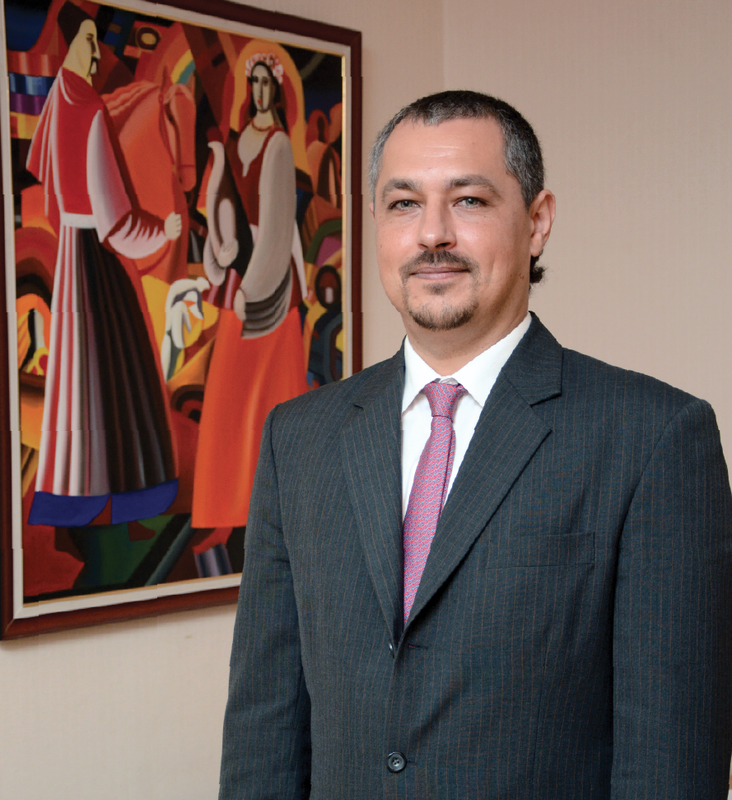
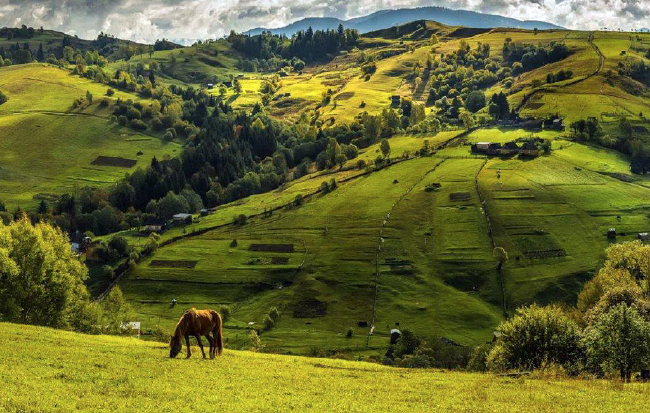
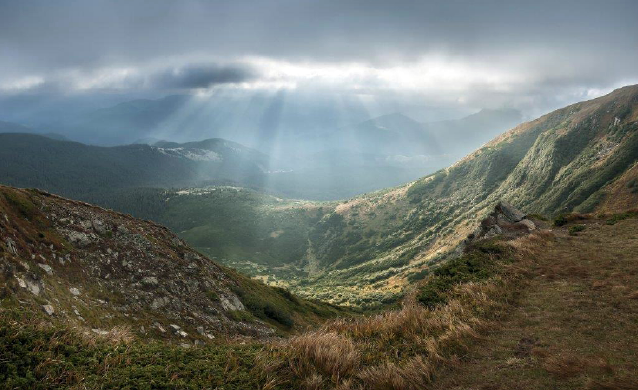
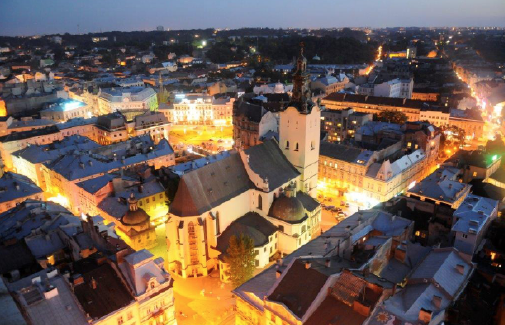
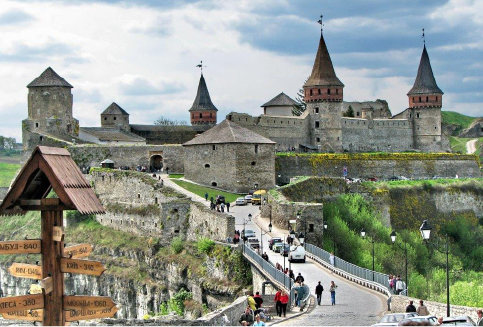
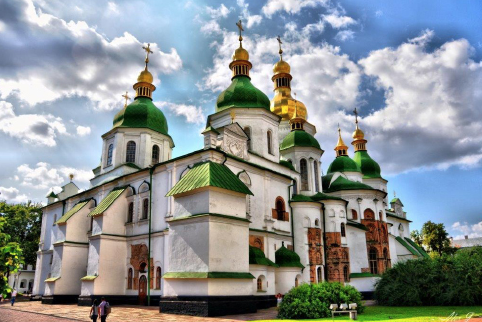
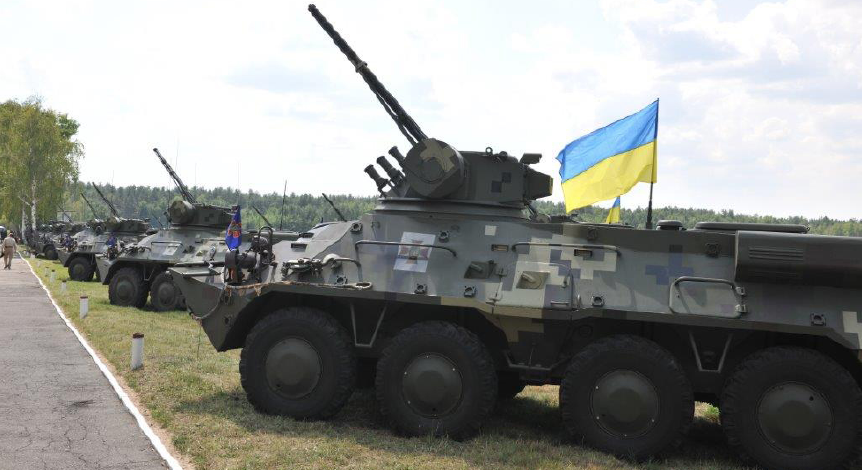
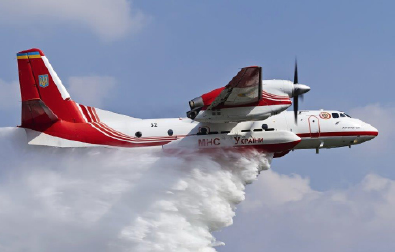
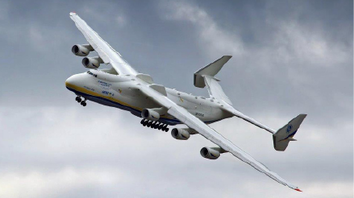
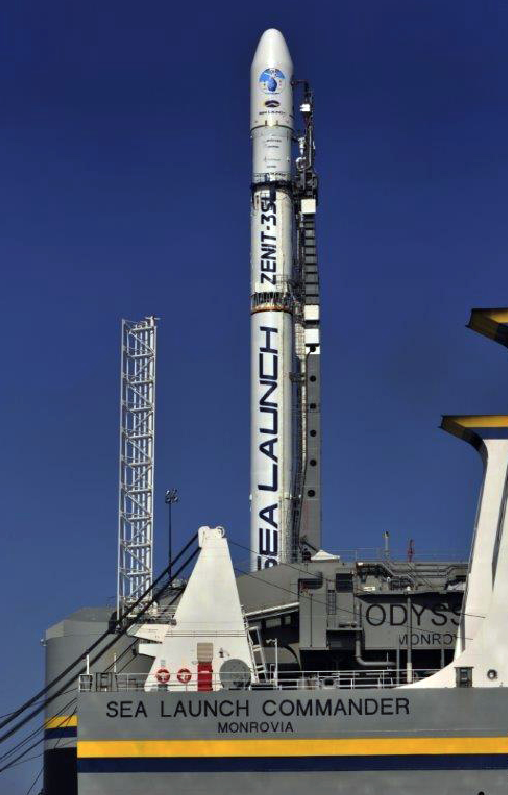
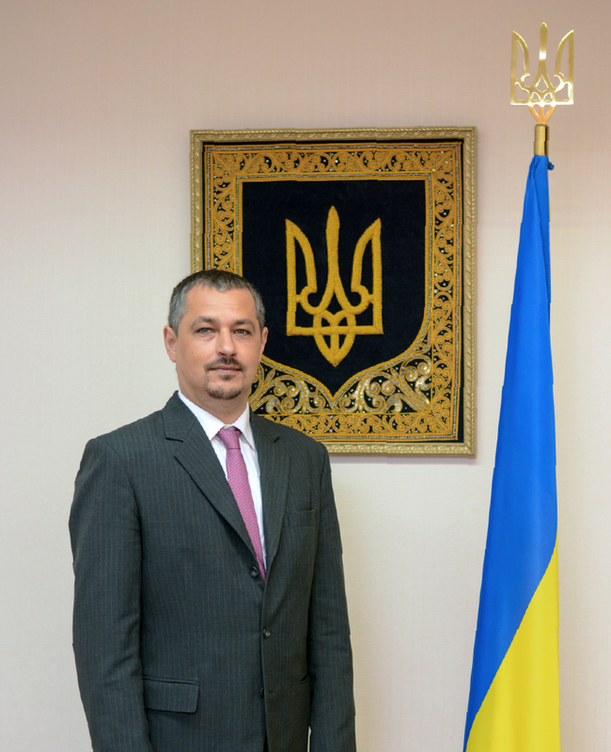
 RSS Feed
RSS Feed
















